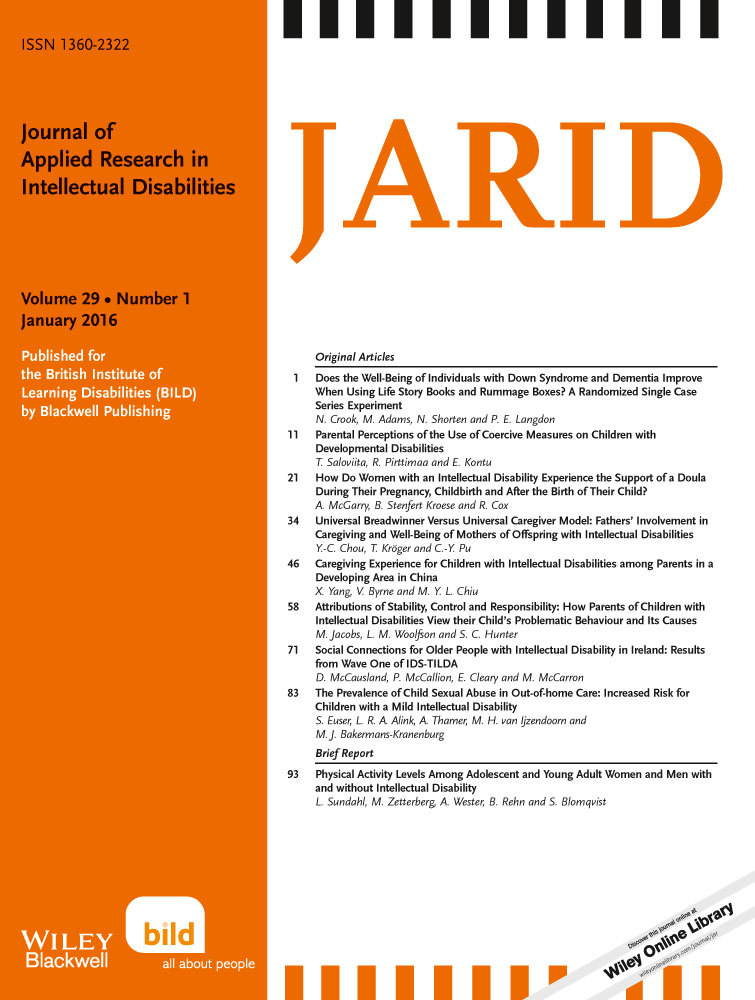Parental Perceptions of the Use of Coercive Measures on Children with Developmental Disabilities
Abstract
Background
Children with developmental disabilities who exhibit challenging behaviour are potentially subject to the use of coercive interventions. The aim of the study was to investigate the prevalence of the use of coercive measures by authorities, according to parents’ reports.
Materials and Methods
A postal survey was distributed, as a total population study, to 946 Finnish parents of children with developmental disabilities, between the ages of 5 and 15, and who were entitled to the highest disability allowance.
Results
Of the respondents, 54 (22%) answered ‘yes’ when asked whether their child had been subjected to coercive procedures by authorities. The parents had seldom approved the use of coercive means and often believed that such means had negative effects on their child.
Conclusions
To protect the children's rights, the use of coercive measures should be regulated more strictly, and positive intervention strategies should be taught to teachers and nurses.




